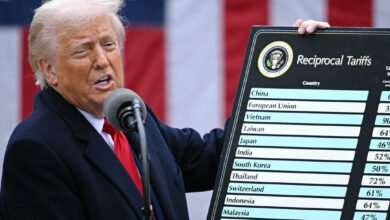
Crypto Trading Funds: Since Bitcoin’s launch in 2009, the cryptocurrency trading scene has seen substantial changes. The variety of investment options accessible to individual and institutional savers has grown in tandem with the market’s maturity. Crypto trading funds are an alternative for people who want to invest in digital assets but don’t want to deal with the hassle of buying and managing them themselves. In this in-depth essay, learn about the several kinds of crypto trading funds, their advantages and disadvantages, potential dangers, and current trends for 2024.
What Are Crypto Trading Funds?
Crypto trading funds are collective investment vehicles that care for investors’ cryptocurrency portfolios. Digital currencies such as Bitcoin, Ethereum, and other altcoins are the only assets of these funds, which function similarly to conventional mutual or hedge funds. Active and passive management is available for these funds; the former involves the manager making trades in assets, while the latter follows the performance of an index or a group of cryptocurrencies.
Types of Crypto Trading Funds
Crypto trading funds come in various forms, each catering to different investment strategies and risk appetites. The main types include:
Hedge Funds
Crypto hedge funds are pools of capital that use various methods to try to make a lot of money. This category includes leverage, arbitrage, long/short positions, and similar techniques. The increased complexity and risk associated with hedge funds make them more suitable for institutional investors or wealthy people.
Index Funds
These funds follow an established index or a set of cryptocurrency benchmarks. One advantage of these investments is their passive nature, as they aim to mimic the performance of an underlying index. Investors seeking low-cost, broad-market exposure can choose crypto index funds.
Venture Capital Funds
Blockchain and cryptocurrency firms in their early stages are the primary investment focus of crypto venture capital (VC) funds. Funds like these take a major risk in the hopes of finding and investing in the industry’s next big invention, which may pay off handsomely.
Exchange-traded funds (ETFs)
Investing in crypto exchange-traded funds (ETFs) allows one to follow the price of one cryptocurrency or a basket of cryptocurrencies. ETFs can be found on regular stock exchanges, so regular people can buy them. Regulators in the United States have thoroughly examined the dangers associated with Bitcoin ETFs, making their approval a sluggish and controversial process as of 2024.
Decentralized Funds
A new style of investment funds, decentralized autonomous organization (DAO), has emerged, where token holders collaboratively make decisions instead of a centralized management team. While blockchain technology provides these funds with decentralization and transparency, it also presents them with governance and regulatory hurdles.
Private Equity Funds
These funds often acquire sizable shares in well-established businesses operating in the blockchain and cryptocurrency industries. Private equity investors may also target infrastructure providers, including exchanges, wallet providers, and mining operations.
Benefits of Investing in Crypto Trading Funds
Investing in crypto trading funds offers several advantages:
Diversification
Crypto trading funds expose investors to diverse digital assets to mitigate the dangers of investing in just one cryptocurrency. Given the extreme price volatility of cryptocurrencies, it is prudent to diversify your holdings.
Professional Management
Crypto trading funds provide skilled management for investors who lack the knowledge or time to trade cryptocurrencies independently. To maximize profits while minimizing losses, seasoned fund managers employ complex methods and technologies.
Accessibility
Crypto trading funds simplify the process of investing in the market by removing the requirement for investors to acquire, store, and protect digital assets. Thanks in part to their accessibility, these funds are becoming increasingly popular among both retail and institutional investors.
Liquidity
Several crypto trading funds offer regular redemption periods, a liquidity feature that allows investors to withdraw their investments without selling individual cryptocurrencies. In a market where volatility is common, this can be very helpful.
Regulatory Oversight
Despite the lack of regulation in the cryptocurrency sector, crypto trading funds are registered with financial authorities. This allows for some control and protects investors. Investors who are worried about the dangers of uncontrolled investing may find this reassuring.
Risks Associated with Crypto Trading Funds
Despite their benefits, crypto trading funds are not without risks. Investors should be aware of the following:
Market Volatility
Prices in the cryptocurrency market can change wildly in a short amount of time, earning the industry a reputation for extreme volatility. This instability has the potential to bring huge profits, but it also carries the danger of huge losses, particularly for leveraged funds.
Regulatory Uncertainty
Cryptocurrencies and crypto trading funds are still in the early stages of their regulatory landscape’s evolution. Regulation changes can significantly affect the value and functioning of crypto funds, and governments worldwide are pondering this question.
Security Risks
Hacking and other forms of cybercrime can compromise crypto trading funds. Even though funds usually use strong security procedures, the possibility of asset loss as a result of a security breach is still a worry,
Liquidity Risk
Regarding cryptocurrency, some investment funds choose less liquid assets or focus on places where liquidity is low. These funds may have trouble selling their holdings when the market is volatile, which might cause investors to lose money or see their redemptions postponed.
Management Risk
Actively managed crypto trading funds are only as good as the managers who run them. Compared to the market, underperformance could result from bad management choices or a failed strategy.
Operational Risk
From trading and custody to reporting and compliance, running a crypto trading fund involves many moving parts. The fund’s performance and investor returns are vulnerable to any breakdown in these activities, whether caused by human mistakes or technological difficulties.
Latest Trends in Crypto Trading Funds (2024)
As we move through 2024, several key trends are shaping the landscape of crypto trading funds:
Increased Institutional Participation
The bitcoin industry is seeing an influx of institutional investors. Due to cryptocurrency’s diversification and high return potential, more pension, endowment, and sovereign wealth funds are putting some of their money into crypto trading funds. As a result of this trend, more complex fund products suited to institutional demands are being developed.
Rise of AI-Driven Funds
Artificial intelligence (AI) is quickly becoming an indispensable tool when managing crypto trading assets. AI-powered funds use machine learning algorithms to scan market data, forecast price changes, and execute trades with little to no human oversight. While these funds can potentially improve trading efficiency and accuracy, they also bring new dangers associated with algorithmic decision-making.
Growth of DeFi Funds
Funds centered around decentralized finance (DeFi) are becoming more popular, and DeFi is already causing waves in the conventional financial industry. To get a piece of the fast-expanding cryptocurrency market, these funds invest in DeFi protocols, DEXs, and other blockchain-based financial services. Smart contract vulnerabilities and regulatory hurdles are two dangers associated with DeFi funds.
Focus on ESG Considerations
All types of investors, including crypto enthusiasts, are starting to place a premium on ESG (environmental, social, and governance) considerations. Several crypto trading funds are prioritizing projectss aligned with sustainable and ethical principles, which now include ESG criteria in their investing processes. Responsible investment is becoming more popular in the financial sector; this trend is only one example.
Launch of Bitcoin Spot ETFs
After years of anticipation, multiple Bitcoin spot ETFs debuted in key markets in 2024. These products mimic Bitcoin’s price changes more closely than futures-based ETFs because they hold Bitcoin directly. Many in the industry saw the approval of spot ETFs as a watershed moment that could lead to other cryptocurrency-based ETFs.
Regulatory Developments
Regulatory agencies worldwide are increasingly monitoring crypto trading funds. The U.S. Securities and Exchange Commission (SEC) has issued new rules for reporting, disclosure, and fund registration. The EU’s Markets in Crypto-Assets (MiCA) framework is also progressing toward a unified framework for regulating digital assets throughout the EU’s member states.
Increased Focus on Security and Custody Solutions
The importance of security and custody solutions is rising in tandem with the value of assets managed by crypto trading funds. Offering cold storage, multi-signature wallets, and insurance coverage, institutional-grade custodians are broadening their services to meet the specific requirements of cryptocurrency assets. This trend is essential to reassure investors and ward off the constant danger of cyberattacks.
Emergence of Tokenized Funds
The introduction of tokenized cryptocurrency trading funds is a step toward tokenization’s eventual adoption by the fund management sector. These funds issue digital tokens representing fund shares that can be traded on blockchain platforms. In markets lacking traditional infrastructure, tokenization can greatly benefit investors by increasing liquidity, allowing fractional ownership, and making the process more accessible.
Conclusion
Crypto trading funds have grown to become an essential component of the larger cryptocurrency ecosystem. As the market continues to change, they allow investors to acquire exposure to digital assets without taking on direct management responsibilities. From rising institutional involvement to AI-driven strategies to DeFi investments, these funds are adjusting to new trends and difficulties.
However, there are dangers involved with crypto trading funds. Investors need to consider market volatility, uncertainty in government regulation, and security risks. Thorough research and an awareness of potential dangers are musts for any financial venture.
Crypto trading funds have a bright future, with plenty of room for expansion and innovation. Bridging the gap between traditional finance and the world of digital assets, these funds are expected to play an even more major role in the global financial markets as the industry grows.







